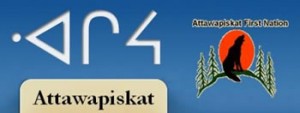Notes on Attawapiskat Finances
Attawapiskat’s finances have been under some scrutiny since the First Nations community in northern Ontario declared a state of emergency last winter due to a housing crisis. At that time the community was placed under third party management, which means an outside party was appointed by the federal government to administer all federal funds flowing to the community.
On August 1st, 2012, the Federal Court of Canada ruled that this was an inappropriate response by the federal government because there was no proof that it was necessary (http://decisions.fct-cf.gc.ca/en/2012/2012fc948/2012fc948.pdf).
para.24,”Despite the comments about management, the Respondent [government] has not produced evidence of incorrect spending or mismanagement.”
With the publicity around Chief Spence’s hunger strike, financial management issues are once again becoming a central focus for some. A recently leaked audit [commissioned by the federal government] has generated a lot of discussion, even though it affirms the Federal Court’s decision that there is no evidence of financial mismanagement.
While the audit does show that some paperwork is lacking, this does not prove fraud or waste, but rather the need for more documentation. The audit also highlights the problematic framework within which services are delivered to First Nations communities.
It is important to keep in mind that Attawapiskat First Nation was under co-management , a measure taken by the federal government when there are concerns about financial management, for the entire period of time covered by the audit. The Auditor General has repeatedly stated, most recently in the 2011 Status Report, that First Nations communities are required by the federal government to complete an unreasonable amount of paperwork.
Allegations of financial mismanagement do not address these as well as many other important issues including underfunding. Both Chief Spence and the grassroots movement of Idle No More raise issues that are deeper than financial questions, including failures to honour the Treaties concluded between First Nations and the Crown, which are enshrined in Canada’s Constitution.
Hopefully, the meeting on January 11 will signal the beginning of a process for resolving these long-standing injustices on a nation-to-nation basis.









